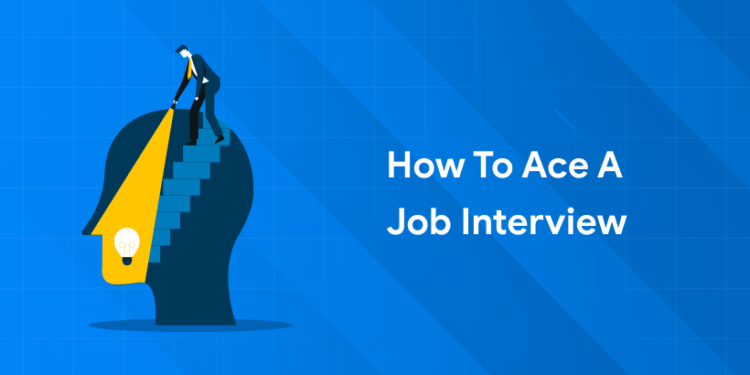Table of Contents
Key Takeaways:
- Research company culture, recent news, and role requirements thoroughly.
- Practice and prepare STAR stories and answers for common questions.
- Highlight your digital literacy and adaptability.
- Dress professionally and set up your tech environment for virtual interviews.
- Follow up with a personalized thank-you note to reinforce your interest.
Introduction
Landing a job in 2026 means more than just showing up prepared—it means mastering the nuances of a rapidly evolving interview landscape. With AI-driven screenings, virtual interviews, and skills-first hiring, candidates need to adapt quickly and strategically. Every step, from researching the company to following up after the interview, now carries new weight and complexity.
The pressure is real, but so are the opportunities. Companies are searching for candidates who not only possess the right skills but also demonstrate adaptability, confidence, and a genuine understanding of the modern workplace. By focusing on these key areas, you can turn your next interview into a career-defining moment.
Why Preparation Is Key in 2026
Job interviews in 2026 are no longer just about answering questions—they’re about navigating a dynamic blend of technology, skills, and soft skills. According to industry reports, over 70% of companies now use AI-powered tools to screen candidates, making it crucial to optimize your resume and responses for automated systems. [1] Additionally, virtual interviews are now the norm, with companies prioritizing digital literacy and adaptability in their hiring process.
Being well-prepared means you’re ready for both traditional and tech-driven interview formats. It also shows hiring managers that you’re proactive, tech-savvy, and genuinely interested in the role. In a competitive market, preparation is your best ally.
Also read: How to Introduce Yourself in an Interview?
Boost Your Skills & Kickstart Your Career!
Employability and Personality Development Course by Entri App: Enhance your communication, confidence, and job-ready skills to excel in your career.
Join Now!8 Crucial Tips to Land Your Dream Role
1. Research the Company and Role Thoroughly
Understanding the company’s mission, values, and recent achievements is essential. Dive into their website, social media, and news articles to get a sense of their culture and priorities. Pay attention to how they communicate their goals and what kind of employees they highlight.
Knowing the specifics of the role is equally important. Many companies now tag roles with specific skill clusters and expect candidates to align their answers with these requirements. This approach helps you tailor your responses and demonstrate that you’re not just qualified, but also a cultural fit.
2. Practice Common and Industry-Specific Questions
Rehearsing answers for both behavioral and technical questions will boost your confidence and help you deliver clear, impactful responses. Use mock interviews, online simulators, or even record yourself to refine your delivery. Focus on clarity, authenticity, and relevance to the role.
Industry-specific questions are becoming more common, especially for specialized positions. Familiarize yourself with the latest trends and challenges in your field, and prepare examples that showcase your expertise. This will set you apart from candidates who rely solely on generic answers.
3. Prepare Your STAR Stories
The STAR method—Situation, Task, Action, Result—is a powerful way to structure your responses for behavioral questions. Start by describing the context, then explain your responsibilities, the actions you took, and the outcomes you achieved. This approach ensures your answers are clear, detailed, and impactful.
Here’s a quick reference table for crafting effective STAR stories:
| Element | What to Include |
|---|---|
| Situation | Describe the background or challenge |
| Task | Explain your responsibilities or goal |
| Action | Detail the steps you took |
| Result | Share the outcome, using numbers if possible |
4. Showcase Your Tech-Savviness
Digital literacy is now a must-have skill for job seekers. Companies expect candidates to be comfortable with collaboration tools like Zoom, Teams, and project management platforms. Familiarity with these tools not only makes virtual interviews smoother but also highlights your adaptability.
Before your interview, test your technology setup to avoid last-minute glitches. Ensure your internet connection is stable, your camera and microphone are working, and your background is professional. This attention to detail leaves a strong impression on interviewers.
5. Dress Appropriately for the Format
First impressions matter, whether you’re interviewing in person or virtually. Dress professionally, aligning your attire with the company’s culture. For virtual interviews, make sure your background is tidy and free of distractions.
Proper dressing boosts your confidence and shows respect for the interview process. It also helps you stand out as a candidate who takes the opportunity seriously.
Read in detail: Ace Your Interview with the Perfect Guide
6. Ask Insightful Questions
Asking thoughtful questions about the role, team, and company goals demonstrates your genuine interest and strategic mindset. Prepare questions that go beyond the basics, such as how the team adapts to technological changes or what the next big projects for the role are.
Insightful questions not only show your enthusiasm but also help you gather valuable information to make an informed decision about the job.
7. Follow Up Professionally
Sending a thank-you email within 24 hours is a simple yet effective way to reinforce your interest in the position. Personalize your message by mentioning specific points from the interview and reiterating your enthusiasm.
A well-crafted follow-up keeps you top of mind and shows courtesy, which can make a positive difference in the hiring process.
8. Stay Calm and Confident
Managing interview anxiety is crucial for success. Practice mindfulness, deep breathing, or visualization techniques to stay calm and focused. Remember, preparation is your best defense against nerves.
Focus on your strengths and the value you bring. Confidence stems from knowing your worth and being ready to showcase it.
People also read: Interview Checklist for the Interview Day
Interview Etiquette in 2026: Examples & Extra Tips
Example for Punctuality and Preparation
- Scenario: For a virtual interview, you join 10 minutes early, check your camera and lighting, and ensure your background is tidy and professional. This small step prevents last-minute technical glitches and sets a confident tone.
Example for Active Engagement
- Scenario: When asked about a challenge you faced, you respond with a STAR story: “In my last role, I led a team project (Situation). My task was to deliver results within a tight deadline (Task). I organized weekly check-ins and delegated tasks effectively (Action), resulting in a 20% increase in efficiency (Result).” This approach keeps your answer structured and impactful.
Extra Tips
- Practice your opening lines: “Thank you for this opportunity. I’m excited to learn more about the role and how I can contribute.”
- If you’re interrupted, politely say, “I apologize for the interruption. May I finish my thought?”
- For panel interviews, make eye contact with each interviewer when responding, showing respect and inclusivity.
Prepare with Entri’s AI Interview Coach now!
Handling Salary Expectations: Examples & Extra Tips
Example for Responding to Salary Questions
- Scenario: When asked about your expectations, you say: “Based on my research and experience, I believe a fair range for this role is ₹6-8 lakhs per annum. I’m open to discussing the full compensation package, including benefits and growth opportunities.” This shows you’re informed and flexible.
Example for Negotiating Benefits
- Scenario: If the salary offered is slightly below your range, you can say: “I appreciate the offer. I’m also interested in understanding what kind of professional development opportunities or hybrid work options are available. Could we discuss these aspects as part of the overall package?” This demonstrates your willingness to collaborate and find a win-win solution.
Extra Tips
- If unsure about the company’s salary band, ask: “Could you share the salary range for this position?” before stating your expectations.
- Highlight non-monetary benefits like flexible hours, remote work, or training programs if salary is negotiable.
- Always remain positive and professional—avoid sounding defensive or demanding.
Read in detail: How to Talk About Salary in a Job Interview
Boost Your Skills & Kickstart Your Career!
Employability and Personality Development Course by Entri App: Enhance your communication, confidence, and job-ready skills to excel in your career.
Join Now!Boost Your Career with Entri
Ready to take your interview skills to the next level? Entri’s Career Level-Up course is designed to hone your communication, confidence, and professional demeanor. This course helps you develop the soft skills essential for navigating interviews and any professional setting with ease. Invest in yourself today and stand out in 2026’s competitive job market!
Conclusion
Acing a job interview in 2026 requires a blend of traditional preparation and an understanding of emerging trends. From mastering your digital tools to storytelling with the STAR method, each element plays a vital role in securing your dream job. Keep learning, practicing, and refining your approach—success is just an interview away.
Good luck—your future in 2026 starts today!
Boost Your Skills & Kickstart Your Career!
Employability and Personality Development Course by Entri App: Enhance your communication, confidence, and job-ready skills to excel in your career.
Join Now!Frequently Asked Questions
What are the most common interview mistakes in 2026?
Common mistakes include failing to research the company, not preparing for behavioral questions, and neglecting to follow up after the interview.
How do I handle an AI-powered interview?
Focus on clear, concise answers and ensure your resume is ATS-friendly. Practice with AI mock interview tools to get comfortable with the format.
What should I do if I don’t know the answer to a question?
Stay calm, acknowledge the question, and explain how you would approach finding a solution. Honesty and problem-solving skills are valued by employers.















